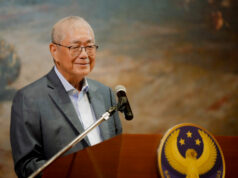Jury out on best wage framework
By Charmaine A. Tadalan
Reporter
SETTING the country’s minimum wage per region each year has always left neither party — employers or workers — satisfied, and the jury is out on a better option that would yield results acceptable to both sectors.
One economist suggested the replacement of the region-based daily minimum wage system with one based on industry.
“The best practice talaga (really), I would hope for one, industry wage-setting. ‘Yung iba (others call for) national minimum wage, ‘yung iba regional wage, pero i-relate naman natin sa industry kasi iba-iba ang requirements (might vary according to industry),” Rene E. Ofreneo, professor emeritus of the University of the Philippines School of Labor and Industrial Relations, said in a telephone interview on Wednesday.
“Maganda ‘yung wage-setting, budgeting related to productivity and technology upgrading (would be preferable). Dapat connect-connect ‘yan (Those elements should be connected).”
While both the Associated Labor Union-Trade Union Congress of the Philippines (ALU-TUCP) and Employers Confederation of the Philippines (ECoP) agreed that such a practice would be ideal, they expressed reservations.
“It’s also a possibility, it’s also worth exploring; but ang problema d’yan ay (The problem is) disparity — baka mamaya lahat ng mga graduates natin dito na pupunta dahil malaki ang sweldo (all our graduates may just go where the pay is bigger). But it’s worth exploring kung ano ba ang (what is) acceptable and applicable dito sa atin (to us),” ALU-TUCP Spokesperson Alan A. Tanjusay said in an interview at a media forum in Malate, Manila on Wednesday.
Also sought for comment, ECoP President Sergio R. Ortiz-Luis, Jr. said in a separate phone interview, “it’s easier said than done, but I think to implement that would be very very difficult; hindi madaling (not easy to do) mag-industry setting.”
Mr. Ortiz-Luis also explained the current regional setting is in place to encourage investments in areas outside Metro Manila. “Ang main reason is the national policy to disperse from urban area ‘yung mga enterprises. Kung pare-pareho ang sweldo (If pay is uniform) nationwide, what would encourage people to invest in Samar, rather than in Manila?”
ALU-TUCP had also proposed to abolish the current system and instead institutionalize a living wage system.
“I think it has to be abolished because it’s a race to the bottom,” Mr. Tanjusay said. “Instead we should institutionalize living wage.”
He defined living wage as one that meets the needs of a family for a decent life, instead of just basic nutrition.
“Ito ang aming susubukan i-work out (This is something we hope to work out) with the government and businesses,” he said, noting the ALU-TUCP will likely push for its legislation.
But ECoP insisted that the existing regional wage-setting scheme would still better than leaving the decision to lawmakers.
“The reality is hindi naman tama na nagse-set ng minimum wage eh. Dapat talaga collective bargaining, but pakonti nang pakonti ang unionized company natin for some reason (The reality is minimum wage-setting is not ideal. There should be collective bargaining, but the number of our unionized companies has been decreasing for some reason),” Mr. Ortiz-Luis said.
“It’s not the ideal one but it’s better than the alternative of legislature doing it because it can be very political and it can be very emotional if it is legislated by our Congress.”



